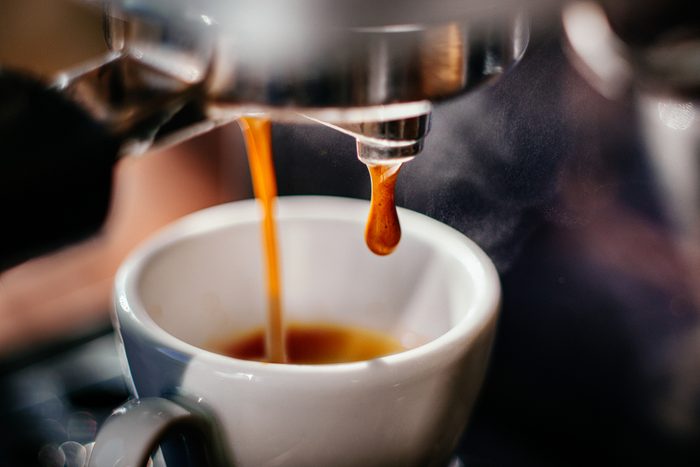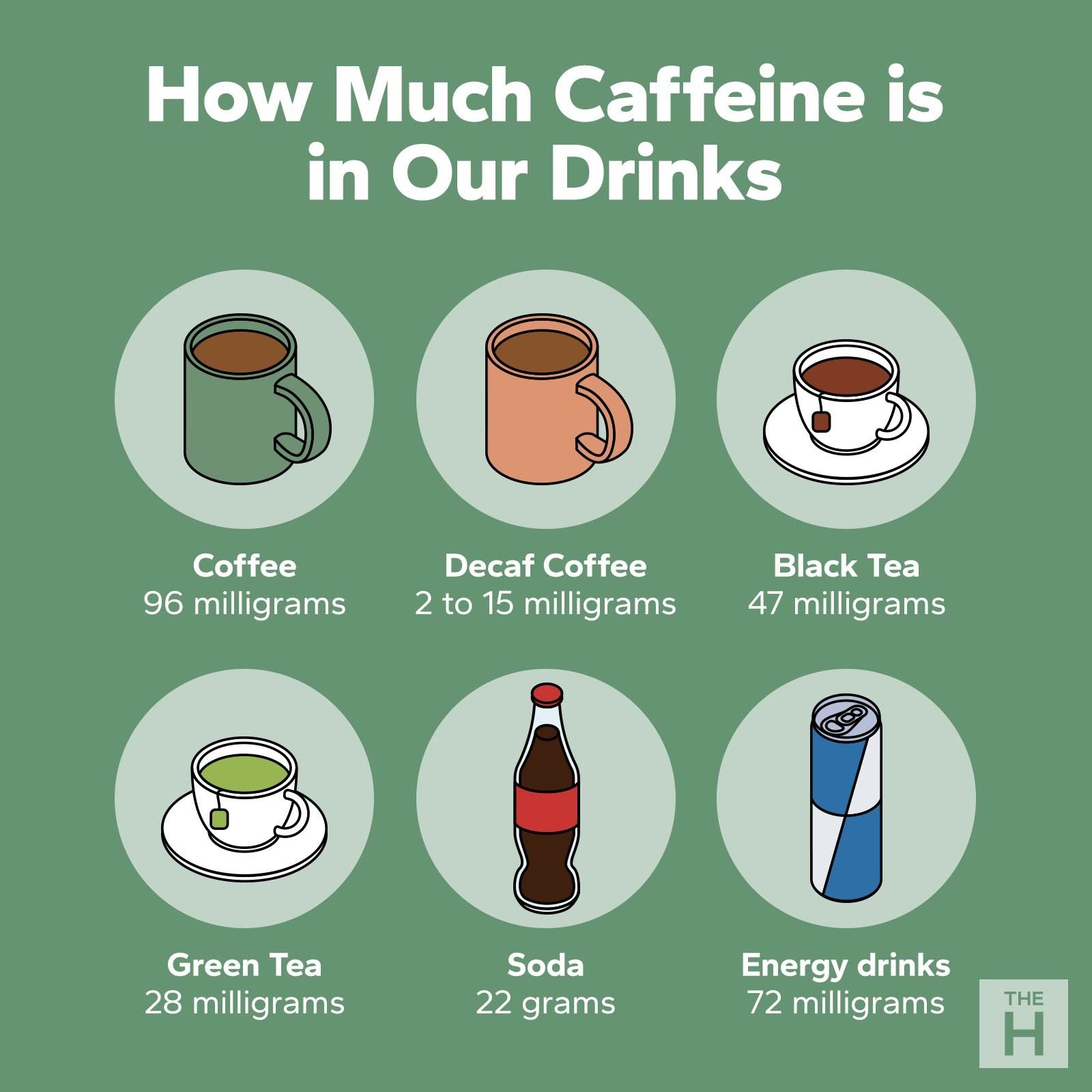Here’s How Much Caffeine You Can Really Have in a Day
Updated: Dec. 09, 2022

How much is too much caffeine? Good news—it may not be necessary to give up your beloved bev. Plus, here's how much caffeine is in six popular drinks.
If you’re a daily caffeine drinker, you may not be all that interested in giving up your ritual. You might even argue that little extra help waking up your brain or maintaining energy in the afternoon is healthy in and of itself (including for the people who interact with you!). But the question “Is caffeine healthy?” is certainly a classic topic of debate: with caffeine being a central nervous system stimulant and considered a psychoactive substance, there’s the argument that consuming too much of it can affect your health negatively.
So how much caffeine can you consume safely? Here’s what health authorities recommend.

Here’s How Much Protein You Really Need in a Day, with a Kidney Doctor’s Wisdom
How caffeine affects your health
Even though caffeine sometimes gets a bad rep, this stimulant can actually be beneficial—particularly for the brain. Not only does it help optimize your alertness during the day, but researchers from Johns Hopkins University found caffeine consumption can benefit long-term memory. Further, the blog for Harvard University’s T.H. Chan School of Public Health points out that the caffeinated coffee has been found to protect brain cells that work to produce dopamine—the feel-good hormone. The Chan school says coffee has even been linked to living a longer life!
11 Things That Might Happen to Your Body if You Switch From Coffee to Tea
So how much caffeine can you have in a day?
According to the U.S. Food and Drug Administration (FDA), a healthy adult can consume up to 400 milligrams of caffeine a day. To put this into perspective, that can equate to around four cups of coffee. (And, by cups, we mean a typical eight-ounce serving…not four venti orders, our caffeine-loving friends!)
It’s important to also be wary of the side effects too much caffeine can have on the body. Caffeine is a diuretic, meaning it causes increased urination. Caffeine can also increase your blood pressure, and research shows it can increase the release of acid in your stomach.
Drinking too much caffeine can also result in feelings of restlessness and anxiety, headaches and dizziness, dehydration, and a faster heart rate. Plus, the Sleep Foundation suggests drinking caffeine within six hours before going to sleep can result in sleep problems. For some people, that window needs to be even longer.
It’s largely because of these side effects that health professionals have set that particular limit of 400 milligrams of caffeine a day, giving you enough to reap the perks of caffeine without overdoing it.
Here’s How You Can Tell If You’ve Built up a Caffeine Tolerance—and How to Get That Buzz Back
How much caffeine is in our drinks
Here’s how the caffeine content looks for each popular caffeinated beverage, according to the Mayo Clinic:
- Coffee: A typical eight-ounce cup of coffee contains 96 milligrams of caffeine. Coffee drinkers can consume up to four cups (28 ounces) safely before hitting their limit.
- Decaf coffee: Yes, decaf coffee does contain some caffeine in it—just not nearly as much as a regular cup of joe. According to the FDA, decaf coffee can contain anywhere between two and 15 milligrams in an eight-ounce cup.
- Black tea: Black tea typically has the strongest caffeine content, with 47 milligrams per eight-ounce cup. Black tea drinkers can consume up to eight cups safely.
- Green tea: Green tea has a bit less when it comes to caffeine, with 28 milligrams per cup. This means green tea drinkers can consume up to 14 cups safely. That much might be a little overboard for your bladder. However, studies do show that drinking green tea every day can lower blood sugar and even benefit your gut health and possibly fend off some cancers.
- Soda: A typical cola drink contains 22 grams of caffeine per eight ounces. However, while soda does contain a small amount of caffeine, most contain a heavy amount of added sugars. The CDC states consumption of sugar-sweetened beverages has been linked to weight gain, type 2 diabetes, heart disease, non-alcoholic fatty liver disease, and more.
- Energy drinks: Energy drinks tend to vary based on caffeine, but the average will contain around 72 milligrams per eight ounces. An energy shot tends to be way more, with 215 milligrams in just two ounces.
Stay tuned in to wellness wisdom that fits how you live: Get The Healthy @Reader’s Digest newsletter, and follow The Healthy on Facebook, Instagram, and Twitter. Keep reading:
- Eating These Foods Can Lead to Premature Death, Says New Study
- The Best Foods for Healthier Lungs, from Pulmonology Doctors and a Dietitian
- Grammy-Nominated Singer-Songwriter Jewel Opens Up About Her Painful Past—And What It Took to Heal
- Feeling Thankful Can Help Prevent These 7 Major Diseases, Says Research
















